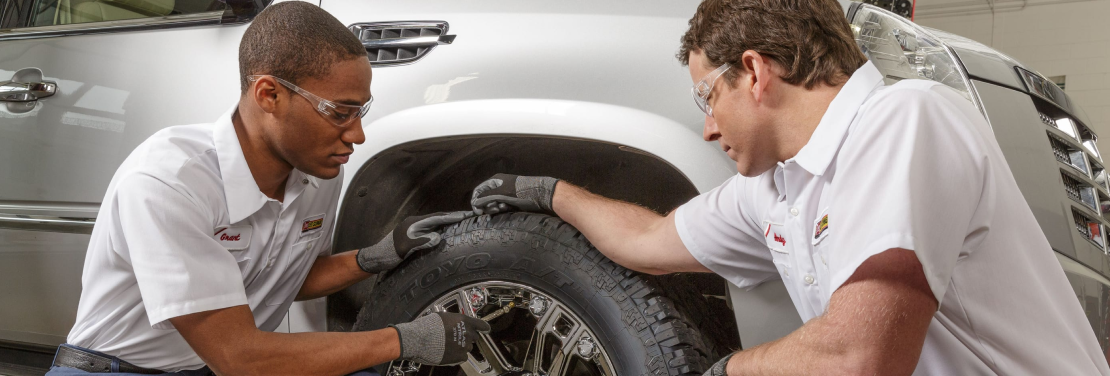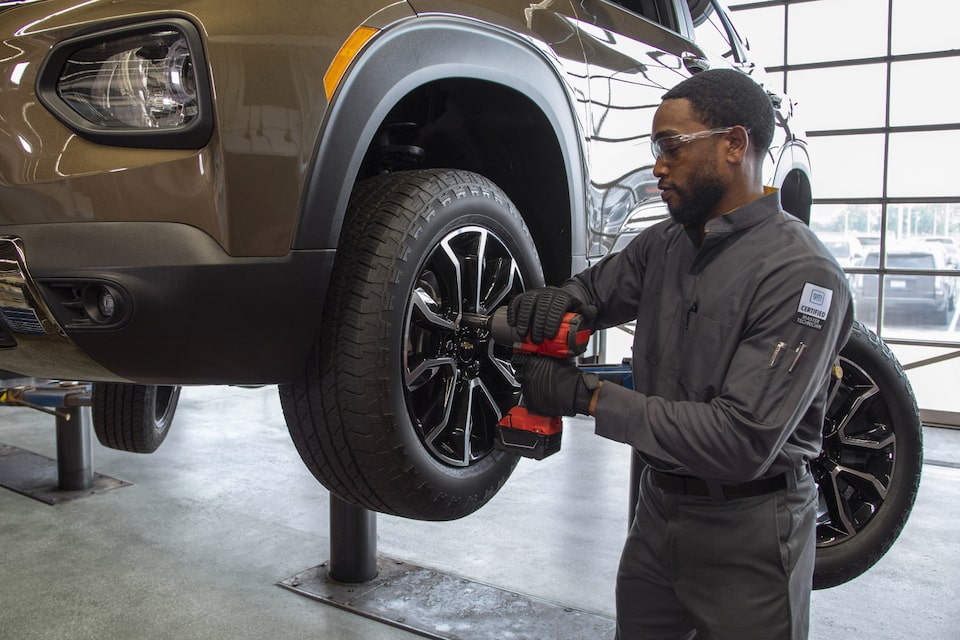Save Big with Mopar Tire Service Specials: Best Deals and Expert Care
Save Big with Mopar Tire Service Specials: Best Deals and Expert Care
Blog Article
Tire Service: The Influence of Climate Condition
When it comes to ensuring optimum performance and safety and security on the road, understanding the influence of climate conditions on tire service is critical. In this discussion, we will certainly check out the detailed relationship in between climate conditions and tire solution, shedding light on the significance of weather-specific tire maintenance techniques and factors to consider.
Warmth and Tire Efficiency
When subjected to heats, tires experience adjustments in performance that can dramatically affect vehicle security and handling. The warmth produced from prolonged driving or hot weather condition conditions triggers the tire rubber to soften, bring about reduced tread life and increased wear. As the rubber comes to be softer, the tire's hold when driving lessens, affecting stopping distances and total grip. In severe cases, excessive warm can also cause tire blowouts, posturing an extreme safety danger to the car and its passengers.
Additionally, heats can speed up the process of tire aging, causing the rubber to weaken faster. This can lead to cracks, protrudes, and other kinds of damage that compromise the architectural honesty of the tire. To minimize the impacts of warmth on tire performance, motorists should frequently examine their tire stress, rotate tires to guarantee also use, and evaluate for any type of signs of damages. Additionally, using tires especially developed to endure high temperature levels can help keep optimal efficiency and safety and security when traveling.
Winter Results
Cold weather problems can have a significant influence on tire efficiency and security. As temperature levels decrease, tire rubber can set, leading to lowered traction on icy or snow-covered roadways. In winter, tires might likewise lose air pressure more rapidly, which can influence managing and fuel effectiveness. In addition, cool temperature levels can cause tire sidewalls to stiffen, raising the danger of damages from potholes or other roadway hazards.
To alleviate the effects of winter on tires, it is crucial to routinely check tire stress and inflate them to the manufacturer's suggested degrees. Using wintertime or all-season tires made for chilly climate conditions can likewise improve grip and grip on icy or snowy roads - morris tire and alignment. Proper tire upkeep, consisting of normal inspections for wear and damage, becomes a lot more vital throughout chillier months to make sure optimal efficiency and security
Rainy Conditions Impact
Throughout rainy conditions, tire performance and safety can be substantially influenced by the damp road surfaces and minimized exposure. The walk pattern of tires plays a vital duty in preserving grip on wet roads. Tires with damaged footsteps are a lot more susceptible to hydroplaning, where a layer of water accumulates in between the tire and the road surface area, resulting in loss of grip. To fight this, motorists need to consistently inspect their tires for ample step depth and consider buying tires especially developed for damp conditions.

Snow and Tire Safety And Security
When driving in snowy conditions, having the appropriate tires can make a considerable difference in safety and security and performance. Winter tires are designed with special rubber compounds and tread patterns to offer better grip on snow and ice compared to all-season tires.
Along with using wintertime tires, it is crucial to guarantee they are properly pumped up. Cold weather condition can cause tire pressure to drop, impacting grip and handling (tires morris il). Frequently examining and preserving the correct tire stress is important for optimal performance in snowy conditions

Weather-Related Tire Maintenance
When confronted with numerous climate condition, proper tire upkeep ends up being a vital facet of vehicle safety and security and efficiency. Weather-related tire upkeep includes a range of techniques aimed at ensuring try this out optimal tire function and longevity in various climate scenarios. One vital facet of weather-related tire upkeep is tire pressure policy. Fluctuating temperature levels can trigger tire stress to vary, affecting grip and fuel performance. Consistently checking and changing tire stress according to maker referrals is important for safe driving in transforming weather. Additionally, tire walk depth plays a substantial duty in taking care of different climate aspects. Tires with sufficient step deepness supply better grip on damp or icy roads, decreasing the danger of skidding or hydroplaning. Evaluating tire walk consistently and replacing tires when tread wear gets to click here for info a particular deepness is important for maintaining grip and security in negative climate. By focusing on weather-related tire upkeep, drivers can enhance safety and security, improve vehicle performance, and extend the life expectancy of their tires.
Conclusion
In final thought, weather problems have a significant effect on tire efficiency and safety (tire shop morris). From warm affecting tire stress and use to cold climate lowering traction, it is important to consider the weather condition when maintaining and using tires.
In this conversation, we will certainly discover the intricate relationship in between weather condition conditions and tire solution, shedding light on the significance of weather-specific tire upkeep techniques and factors to consider.

Report this page